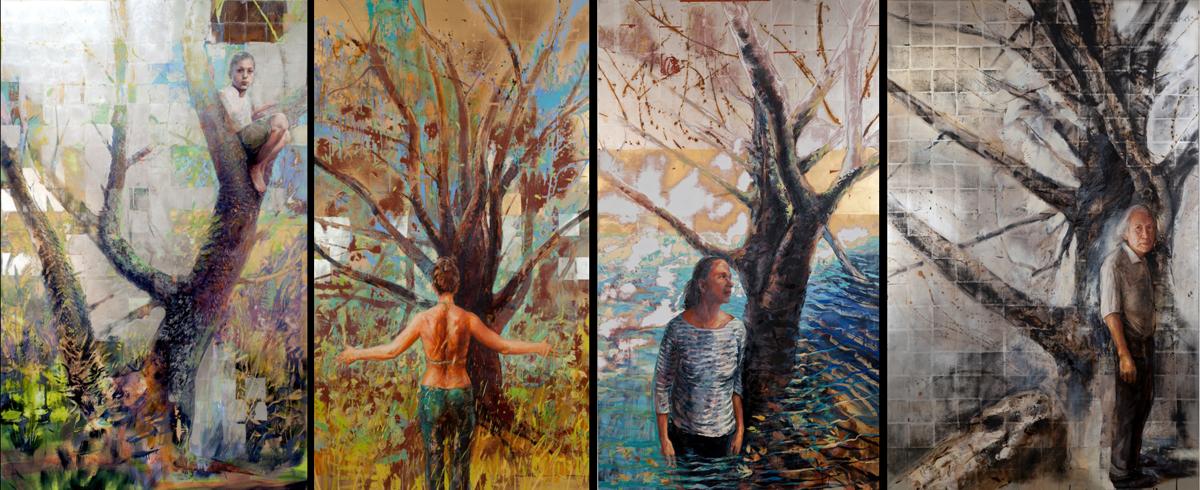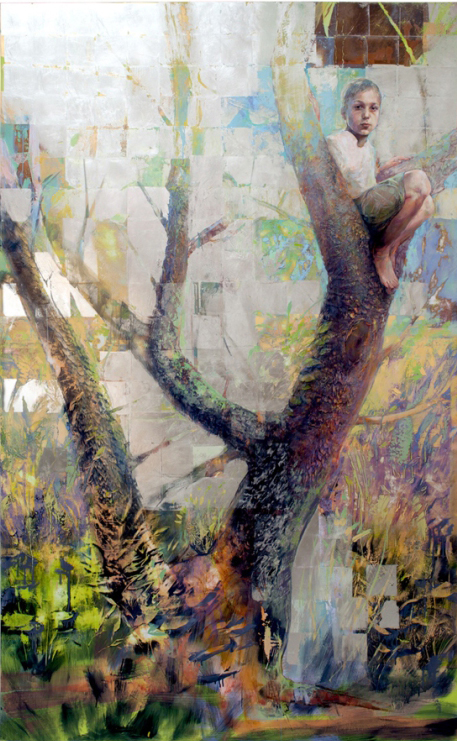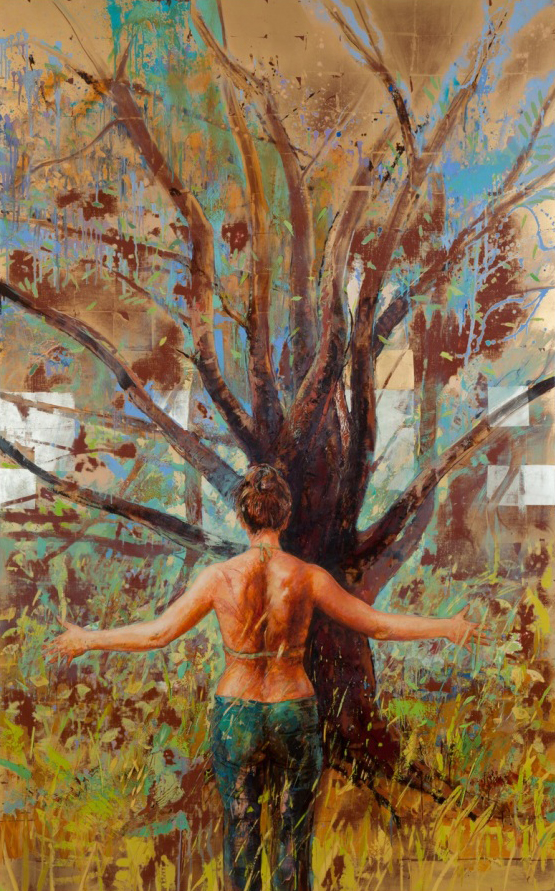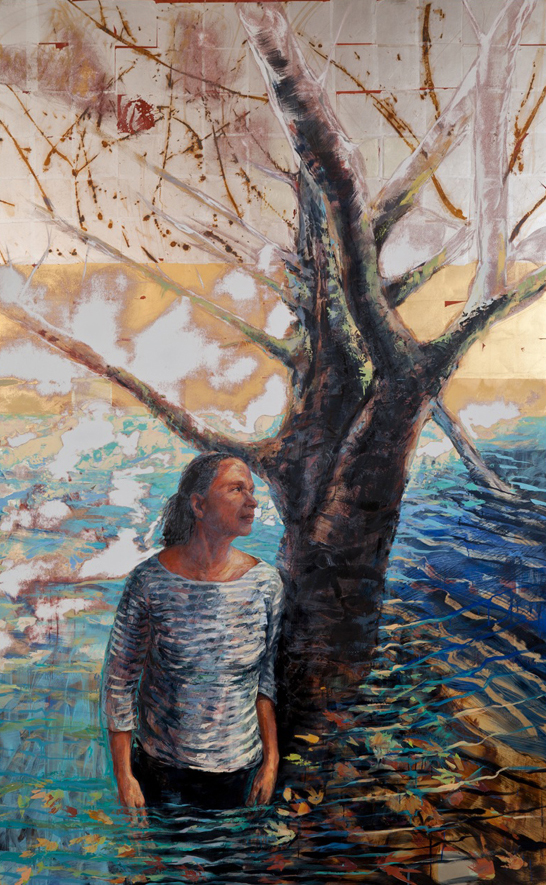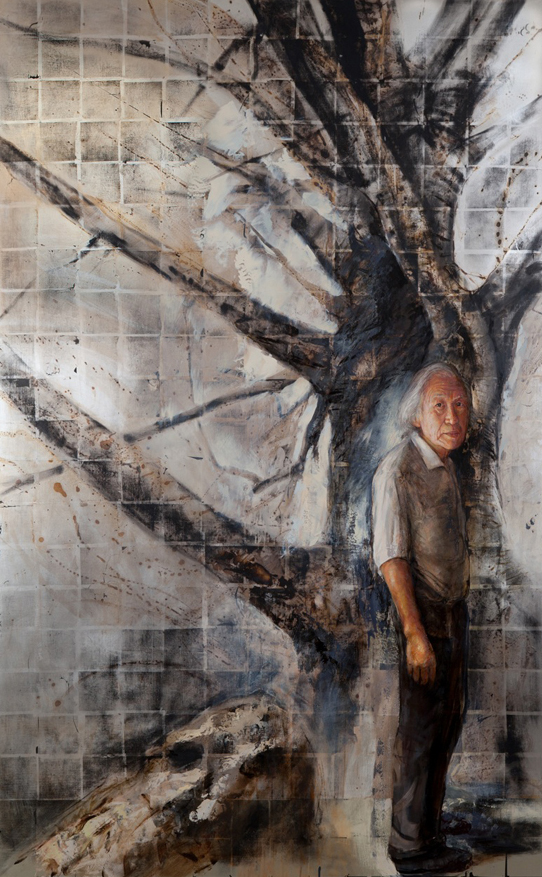March 2: Psalms of Instruction & Wisdom
♫ Music:
WEEK ONE
TITLE: PSALMS OF INSTRUCTION & WISDOM
March 2–March 5
We begin our Lenten journey on a somber note, as we take stock of the condition of our souls. This Lenten examination is crucial because it seems that so many of us tend to hum along on autopilot until something jolts us back to reality. The Message, a paraphrased version of Scripture, says it this way: “Test yourselves to make sure you are solid in the faith. Don’t drift along taking everything for granted. Give yourselves regular checkups. You need first hand evidence, not mere hearsay, that Jesus Christ is in you. Test it out. If you fail the test, do something about it. I hope the test won’t show that we have failed. But if it comes to that, we’d rather the test showed our failure than yours. We’re rooting for the truth to win out in you. We couldn’t possibly do otherwise” (2 Corinthians 13: 5–8).
The wisdom psalms are pithy psalms of instruction—psalms encouraging the reader to focus on the eternal rather than the temporal matters of life. Very often this plays out in the form of dramatic contrasts between the ways of the wicked and those of the righteous. Which are we? It appears that with each unfolding day of life we become either more Christlike or less like him. In the context of The Lent Project then, we are encouraged to use the lens of self-examination as we meditate together over the next few weeks on Christ in the Psalter. May the Holy Spirit graciously point out the sins of commission, as well as omission, that we harbor in our hearts as we hopefully hear and heed God’s instructions and commandments.
Day 1 - Wednesday, March 2
ASH WEDNESDAY
Title: THE FRAILTY OF HUMANITY
Scripture: Psalm 90:3-13
You turn man to destruction,
And say, “Return, O children of men.”
For a thousand years in Your sight
Are like yesterday when it is past,
And like a watch in the night.
You carry them away like a flood;
They are like a sleep.
In the morning they are like grass which grows up:
In the morning it flourishes and grows up;
In the evening it is cut down and withers.
For we have been consumed by Your anger,
And by Your wrath we are terrified.
You have set our iniquities before You,
Our secret sins in the light of Your countenance.
For all our days have passed away in Your wrath;
We finish our years like a sigh.
The days of our lives are seventy years;
And if by reason of strength they are eighty years,
Yet their boast is only labor and sorrow;
For it is soon cut off, and we fly away.
Who knows the power of Your anger?
For as the fear of You, so is Your wrath.
So teach us to number our days,
That we may gain a heart of wisdom.
Return, O Lord! How long? And have compassion on Your servants.
Poetry:
sorrow song
by Lucille Clifton
for the eyes of the children,
the last to melt,
the last to vaporize,
for the lingering
eyes of the children, staring,
the eyes of the children of
buchenwald,
of vietnam and johannesburg,
for the eyes of the children
of nagasaki,
for the eyes of the children
of middle passage,
for cherokee eyes, ethiopian eyes,
russian eyes, american eyes,
for all that remains of the children,
their eyes,
staring at us, amazed to see
the extraordinary evil in
ordinary men.
THE FRAILTY OF HUMANITY
These are the words of an old man, a man who knows his God, and who has come to know himself. Moses, the friend of God, wrote this psalm when he was an old man.
We begin as dust and we end as dust, and in between we are sinners. God took the dirt of the ground and breathed life, creating a living soul-creating you and me.
And at the end, we have one last sigh, and once more we are on our way to dust. And yet, and yet, we are still souls in the care of our Creator.
I remember the heaviness and burden of my husband’s ashes as I carried them out of the mortuary that day last August. I wondered, “How can it be that this beloved man is reduced to a box of ashes that I can carry?” Beloved dust.
In life, we see ourselves as something bigger: most days we don’t walk around pondering the fact that we will be reduced to dust. Yet this is in fact our end. And, as the Sage of Ecclesiastes assures us, “All are from dust and to dust all return.” As a matter of fact, just a couple of chapters later, the Sage declares that, even while we are vibrantly alive, it is better to go to the House of Mourning than the House of Feasting because death is the end of us all and the wise take it to heart!
So reading this, thinking of this, you are being wise right now. “Teach us to number our days,” our music echoes our Scripture today.
Today is Ash Wednesday. On this day every year, together, we who hope in the Lord Jesus stop and contemplate our earthly end. We gather ourselves together––oldest and youngest––and in liturgical churches, we actually have an ugly, dirty, gritty black cross marked on our foreheads. Ashes! “Remember that you are dust and to dust you will return,” we are told. Remember this truth, remember this end. There are seasons to life, as today’s art demonstrates, and we all have an end. Remember this. It is wisdom to be taught by this, to contemplate the sorrow of our days, the burden of our sins, our secret sins, and to number our days.
How can we bear this? Like Moses, we throw ourselves on God’s compassion and we count on God’s return.
We might ask the Creator, our Father, “How do you bear all this grief, God? How can you stand all this certain death of Your creatures?”
“They’re not dead to Me,” comes the answer. I love Jesus’ sturdy answer to His interrogators in Matthew 22 when they are questioning the possibility of the resurrection. Jesus quotes Moses writing in Exodus, and the truth of eternal life rings clear: “You are quite wrong!” Jesus says to the Sadducees, “God is the God of the living and not the dead.”
God does not lose His own, the things that separate us from each other do not separate us from God. Even death does not separate us from His love or His presence.
So here on Ash Wednesday, with our dusty, ash-crossed heads weighed down by sorrow, we must remember where we are headed in these Lenten days of repentance and fasting and mourning. Because of Jesus and His resurrection, we have a second morning, a birth into an eternal day, where we will rise to meet our Lord and live with Him forever. This is our hope and our sure comfort as we remember our mortal end.
I say it again: God does not lose His own, even our certain death does not separate us from His love. Ponder this, number your days, and be wise.
Prayer
Search me, oh Lord and know my heart.
Try me, and know my cares.
And see if there be any grievous way in me,
And lead me in the way everlasting.
––Inspired by Psalm 139
Dr. Betsy Barber
Associate Director of the Institute for Spiritual Formation
Associate Professor of Spiritual Formation and Psychology
Talbot School of Theology
Biola University
For more information about the artwork, music, and poetry selected for this day, we have provided resources under the “About” tab located next to the “Devotional” tab.
About the Artwork:
QU4RTETS: Spring, Summer, Autumn, and Fall
(4 images)
Qu4rtets No. 1 (Spring)
Qu4rtets No. 2 (Summer)
Qu4rtets No. 3 (Autumn)
Qu4rtets No. 4 (Winter)
Bruce Herman
2012
Oil with 23-kt. gold, silver, and moongold on wood
97 x 60 in.
Oil on canvas
These four paintings, created by artist Bruce Herman, are part of the QU4RTETS project to illuminate T. S. Eliot’s masterpiece Four Quartets. The project participants included painters Bruce Herman and Makoto Fujimura and Yale composer Christopher Theofanidis––all interacting with Eliot’s poems of man's relationship with time, the universe, and the divine. Though intended to be viewed within the context of the whole project, together the four paintings by Herman represent a profound visual meditation on the seasons of life. Herman’s paintings, like T. S. Eliot’s poetry, abound in symbolism, nuance, experience, and allusion. Through the use of repeating motifs, such as single figures, a grid, and a tree, Herman imbues his paintings with a greater conceptual depth than the standard seasonal metaphor for life. Herman has said of his work: “In our collaboration, we are addressing an old painterly tradition: the four seasons and four stages of life, implicit in Eliot’s poem. I’ve tried to interact directly with Eliot’s use of the four elements—earth, air, fire and water—to create a set of meditations on death and resurrection while pointing toward a mysterious fifth element (quintessence).”
https://artasillumination.wordpress.com/2013/06/17/bruce-herman-qu4rtets-the-four-seasons-of-life/
About the Artist:
Bruce Herman (b. 1953) is an artist who holds the Lothlórien Distinguished Chair in the art department of Gordon College in Wenham, Massachusetts. He achieved both a B.F.A. and an M.F.A. from the School for the Arts at Boston University, where he studied under Philip Guston, James Weeks, David Aronson, Reed Kay, and Arthur Polonsky. He joined the faculty at Gordon College in 1984 and was awarded various chairs and positions until he was awarded the aforementioned position. His work has been exhibited around the world, and he has paintings housed in the Vatican Museum of Modern Religious Art, the Cincinnati Museum of Fine Arts, and the DeCordova Museum. Herman’s art has been exhibited in Boston, New York, Los Angeles, and most major cities in the USA, and abroad in Italy, England, Israel, Japan, and Hong Kong. Herman’s art and writings are published in a thirty-year retrospective in Through Your Eyes (2013). His published essays are found in many print and online journals including IMAGE, Comment, Books and Culture, and many others.
https://www.bruceherman.com/
About the Music:
“Shaper of the Dust” from the album Nearer to You
Lyrics:
[Spoken Introduction]
God formed man of the dust of the ground..
And breathed into his nostrils the breath of life.
But Lord, what is man that you take knowledge of him?
Or the son of man that you are mindful of Him?
Man is like a breath.
His days are like a passing shadow.
There is only a step between now and forever,
Only a heartbeat away.
There is so little time between living and dying,
So soon till our beauty will fade
So, teach us, teach us, Everlasting One!
[Chorus]
Shaper of the dust, You Who pity us,
Come and teach us in Your tenderness
To number off our days, to feel them fly away,
That we would walk in wisdom to the end.
You tell us that we are a vanishing vapor;
We see it and then it is gone.
You say that our life is a lot like a flower
Whose glory won’t last very long.
So, teach us, teach us, Everlasting One!
How kind to remind us how fast and how fleeting
This life of limited days.
How quick we forget how long and how lasting
The life that follows the grave.
So, teach us, teach us, Everlasting One!
About the Performer/Composer:
Heather Schopf and Forever Be Sure Music (FBS)
Forever Be Sure Music’s (FBS) mission is to glorify God by composing, arranging, and performing message-based music with fresh, appropriate sounds that help God’s people accurately and passionately worship our Creator and Savior, Jesus Christ. Since their first album in 2008, their aim and desire has been to help fill an increasing void and to provide beautiful music that will spark a connection with the generation of saints in our era.
Heather Schopf is a composer/arranger who works with Forever Be Sure Music (FBS). Over the years, her developing skill and love of music led her to attend Bible college, and she earned her music and Bible degrees in 2003. In 2006, she began focusing and expanding her musical pursuits by composing and arranging vocal music. She finds joy in ministering to local churches while traveling with FBS or in her own congregation, Lighthouse Baptist Church of Eau Claire, Wisconsin.
https://foreverbesure.com/
https://foreverbesure.com/about-us/
About the Poet:
Lucille Clifton (1936–2010) was one of the most distinguished, decorated, and beloved poets of her time. She won the National Book Award for Poetry for her Blessing the Boats: New and Selected Poems 1988-2000, and was the first African American female recipient of the Ruth Lilly Poetry Prize for lifetime achievement from the Poetry Foundation. Ms. Clifton received many additional honors throughout her career, including the Discovery Award from the New York YW/YMHA Poetry Center; a 1976 Emmy Award for Outstanding Writing for the television special Free to Be You and Me; a Lannan Literary Award in 1994; and the Robert Frost Medal from the Poetry Society of America in 2010. Her honors and awards give testament to the universality of her unique and resonant voice. In 1987, she became the first author to have two books of poetry—Good Woman and Next—chosen as finalists for the Pulitzer Prize in the same year. She was also the author of eighteen children’s books and in 1984 received the Coretta Scott King Award from the American Library Association for her book Everett Anderson’s Good-bye.
https://www.poetryfoundation.org/poets/lucille-clifton
About the Devotion Author:
Dr. Betsy Barber
Associate Director of the Institute for Spiritual Formation
Associate Professor of Spiritual Formation and Psychology
Talbot School of Theology
Biola University
Betsy Barber has a clinical practice with specialization in the soul care and mental health of Christian workers. She teaches courses in spiritual formation, soul care, missions, maturity, and marital relationships. She has particular interest in spiritual formation and supervision of students in spiritual direction and mentoring. She worked with her husband as a missionary in Bible translation and counseling ministries for twenty-four years. In addition to being a licensed clinical psychologist, she has background and training in spiritual direction.
